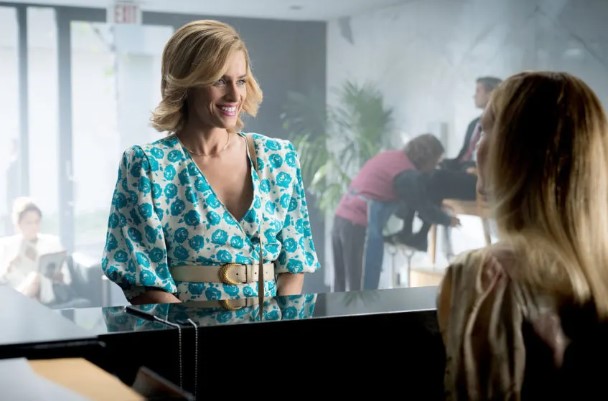A gut-wrenching tale about a woman, who loses everything, and her revenge
I’m not usually a fan of true crime. I think it is repetitive, often-times boring, and even a little bit exploitative, depending on the severity of the crime and what you can imply on TV.
But when I saw Amanda Peet and Christian Slater, two actors whom I’ve respected throughout their careers, decide to star in this scorned housewife-turned-murder story, I was intrigued. So, I gave this show a shot. I watched the first two episodes of Dirty John season 2 and was surprised just how much I liked it.
There is something to the Betty Broderick story. Maybe, it’s the romanticization of a woman who had the potential for anything, yet sacrificed everything to the will of her man? Maybe, it’s the fact that the story is a cautionary tale of divorce and to not base one’s life solely on the prospect of husband and family?
Yes, Betty Broderick murdered her husband, but, at the same time, she was emotionally abused, used, and painfully discarded. So, could you fully blame her? It’s a sympathetic tragedy where we know how it ends: with Betty murdering both her ex-husband and his wife.
How we get there is what makes the series intriguing.
It begins as sweethearts at Notre Dame. Then a life in La Jolla with four perfect children.
It ends in a double homicide. With failed good-intentions and broken dreams.
MARRIAGE ENCOUNTER

This episode focuses on reconciliation and communication, with attempts at patching-up a distant marriage through material means, as Dan Broderick (Slater) finally sees his career take off as an attorney. After episode 2’s flashback episode dedicated to seeing the initial romance between Betty Broderick (Peet) and Dan and a dedicated look at the couple’s struggles balancing work, finances, and family — with Betty laboring to provide for the family and Dan’s schooling — the two celebrate Dan’s newfound success. Betty comments on how much better they are away from that life of poverty.
Yet, therein lies the touchy taboo, as Dan refuses to admit in public — let alone, to his law firm partners — that their life was shit. He dislikes having been on food stamps and doesn’t want anyone to really get to know him: as that could be a sign of weakness and possible vulnerability.
This sentiment echoes not only his work but Dan’s marriage to Betty. But divorce is a popular and new type of law, with an increasing rise in divorcees, settlements, and new approaches. The law firm itself seems to be experiencing a bit of that with the partners and their wives, as gossip leads to hints of an unspoken inspiration for Dan in this episode.
Still, not all seems lost. Betty emphasizes that, when times were hard, she felt appreciated, and, now that Dan just works, they’re losing each other and touch with the world.
To save things, it seems Betty, like many respectable reasonable wives, wants to seek marriage counseling. She and Dan attend Marriage Encounter, where the church and their priest opens the floor like couples therapy. There, they share their hopes and dreams: she wants to be close to her husband again, and he wants to provide, as it’s important to his values. More than anything, Dan wants to show Betty that the happy sacrifices they made to get here where they today are worth it.
And they are. For a time. As years of marriage are allegedly fixed by things done in a single session, the two get over their issues (not really) and build-up a life of luxury. Yet, over time, Betty continues to be jealous of Dan’s office. She buys things to fill the void, as things grow distant again. This, of course, is in fact due to the law firm’s new receptionist (and Dan’s future wife Linda Kolkena), who is soon turned personal assistant, despite having no qualifications. Like an episode of Mad Men, Dan gets close to working with this woman.
Betty, infuriated as to what she’s seeing, threatens to kick Dan out as she knows something is happening. Yet, Dan fights back declaring final authority: because he pays for her life. Years of proclamation promises and desires are shattered: in the end, it all comes down to who owns the money.
It’s an unfair power shift, highlighting major stresses in most marriages: who earns more and who has the higher say. Because of this, Betty is practically owned by her husband.
